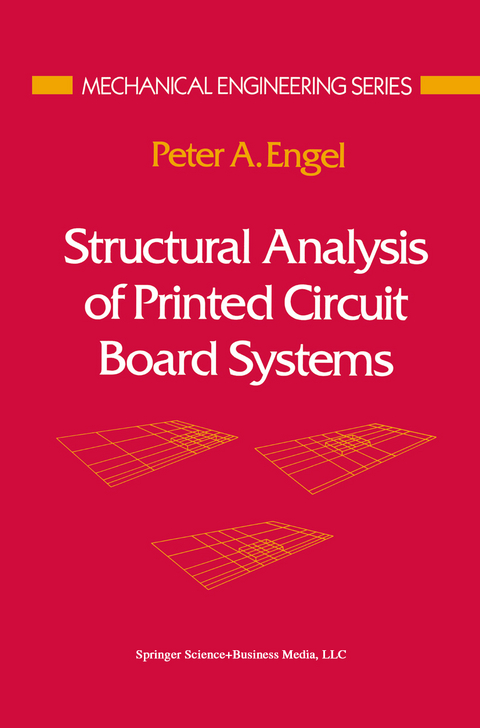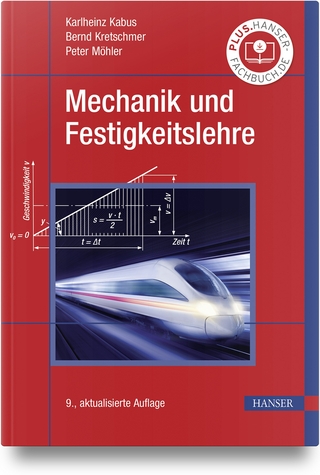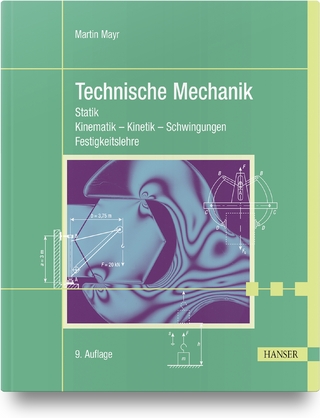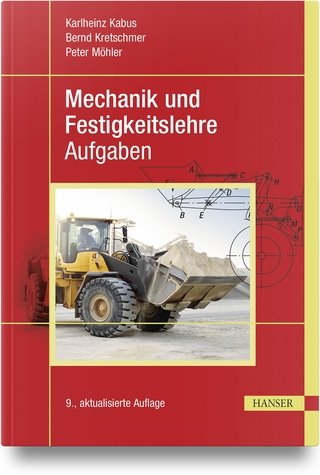
Structural Analysis of Printed Circuit Board Systems
Springer-Verlag New York Inc.
978-1-4612-6945-8 (ISBN)
1. Elements of Structural Analysis.- 1. Rods.- 2. Beams.- 3. Plates.- 4. Thermal Stress.- 5. Plastic Beam Deformation.- 6. Energy Methods in Structural Analysis.- 7. Experimental Methods of Analysis.- References.- 2. Finite Element Analysis.- 1. Preliminaries.- 2. Direct Stiffness Matrix Approach.- 3. The Principle of Minimum Potential Energy.- 4. Element Types.- 5. Finite Element Dynamic Analysis.- 6. Stress and Strain Calculations.- 7. Structural Codes.- 8. Steps in the Use of Finite Element Analysis.- References.- 3. Components, Data, and Testing.- 1. Modules.- 2. Circuit Cards and Boards.- 3. Pin Leads of PGA Modules.- 4. Strength of Compliant Leads in Surface-Mount Construction.- 5. Stiffness of Compliant Leads.- 6. Solder Strength.- References.- 4. Leadless Chip Carriers.- 1. Loads and Materials.- 2. Thermal Stress Analysis.- 3. The Influence of Solder Joint Shape.- 4. Constitutive Equation for Solder Mount.- 5. Conclusions.- 6. Exercises and Questions.- References.- 5. Thermal Stress in Pin-Grid Arrays: Primary Analysis of
Pins.- 1. Introduction.- 2. Elastic Foundation Modulus of a Soldered Pin.- 3. Elastic Foundation Treatment for the Embedded Pin.- 4. Solder Pressure Calculation.- 5. Plastic Analysis of the Pin.- 6. Axial Pin Force Due to Flexure.- 7. A Magnified-Scale Experiment.- 8. Conclusions.- 9. Exercises and Questions.- References.- 6. Thermal Stress in Pin-Grid Arrays: Interaction Between Module and Circuit Card.- 1. Pin Force Analysis Due to Module and Card Bending.- 2. Influence of Pin-End Moments.- 3. Influence of the Primary Axial Pin Forces.- 4. Influence of Secondary Axial Pin Forces.- 5. Solution of the System of Equations.- 6. Module and Card Stretch Due to Pin Shear.- 7. System Reduction Factor.- 8. Conclusions.- 9. Exercises and Questions.- References.- 7. Compliant Leaded Systems: The Local Assembly.- 1. Experimental Studies.- 2. Analytical Model.- 3. Properties of Simple Local Assemblies.- 4. Discrete Local Assembly.- 5. Built-up (Multiple-Module) Local Assemblies.- 6. Orthotropy of Local Assemblies.- 7. Module Group Assemblies.- 8. Conclusions.- 9. Exercises and Questions.- References.- 8. Bending in Compliant Leaded Systems.- 1. The Role of Leads.- 2. Application of the Finite Element Method.- 3. Strip Method.- 4. Building Block Method.- 5. Hybrid Experimental/Analytical Method.- 6. Conclusions.- 7. Exercises and Questions.- References.- 9. Approximate Engineering Theory for the Twisting of Compliant Leaded Circuit Card/Module Systems.- 1. Fundamental Approach.- 2. Torsional Stiffness Calculation.- 3. Rectangular Cards with a Module.- 4. Module Clusters.- 5. Finite Element Check of the Approximate Theory.- 6. Conclusions.- 7. Exercises and Questions.- References.- 10. Analytical Theory and Experimental Work in Compliant Leaded Systems Subjected to Twisting.- 1. Analytical Theory.- 2. Torsional Stiffness.- 3. Experimental Study.- 4. Large Displacements.- 5. Approximate Large Displacement Analysis of a Square Card.- 6. Torsional Fatigue.- 7. Conclusions.- 8. Exercises and Questions.- References.- 11. Thermal Stresses in Compliant Leaded Systems.- 1. Motivation for Analysis.- 2. Analytical Lead Stress Computation.- 3. Finite Element Thermal Stress Analysis.- 4. Stress Reduction in Compliant Leaded Solder Joints.- 5. Thermal Fatigue in Solder Joints of Compliant Leads.- 6. Thermal Cycling Reliability.- 7. Exercises and Questions.- References.- 12. Dynamic Response of Circuit Card Systems.- 1. General Considerations.- 2. Dynamic Load Levels and Measurement.- 3. Vibration Analysis in Circuit Card Systems.- 4.Transient Vibration and Shock Response.- 5. Fatigue Considerations.- 6. Conclusions.- 7. Exercises and Questions.- References.- 13. Plated Holes in Cards and Boards.- 1. Introduction.- 2. Thermal Stress from Module-to-Card Mismatch.- 3. Thermal Stress from Barrel-to-Board Mismatch.- 4. Experimental Methods.- 5. Vias.- 6. Conclusions.- 7. Exercises and Questions.- References.- 14. Assembly of Cards and Boards.- 1. Physical Description.- 2. ZIF Connector Actuation.- 3. Connector Contact.- 4. Dynamic Response.- 5. Thermal Stress.- 6. A Combined Permanent and Separable Connector System.- 7. Conclusions.- 8. Exercises and Questions.- References.- Author Index.
| Reihe/Serie | Mechanical Engineering Series |
|---|---|
| Zusatzinfo | XIX, 291 p. |
| Verlagsort | New York, NY |
| Sprache | englisch |
| Maße | 155 x 235 mm |
| Themenwelt | Naturwissenschaften ► Physik / Astronomie ► Mechanik |
| Technik ► Elektrotechnik / Energietechnik | |
| Technik ► Maschinenbau | |
| ISBN-10 | 1-4612-6945-8 / 1461269458 |
| ISBN-13 | 978-1-4612-6945-8 / 9781461269458 |
| Zustand | Neuware |
| Haben Sie eine Frage zum Produkt? |
aus dem Bereich


